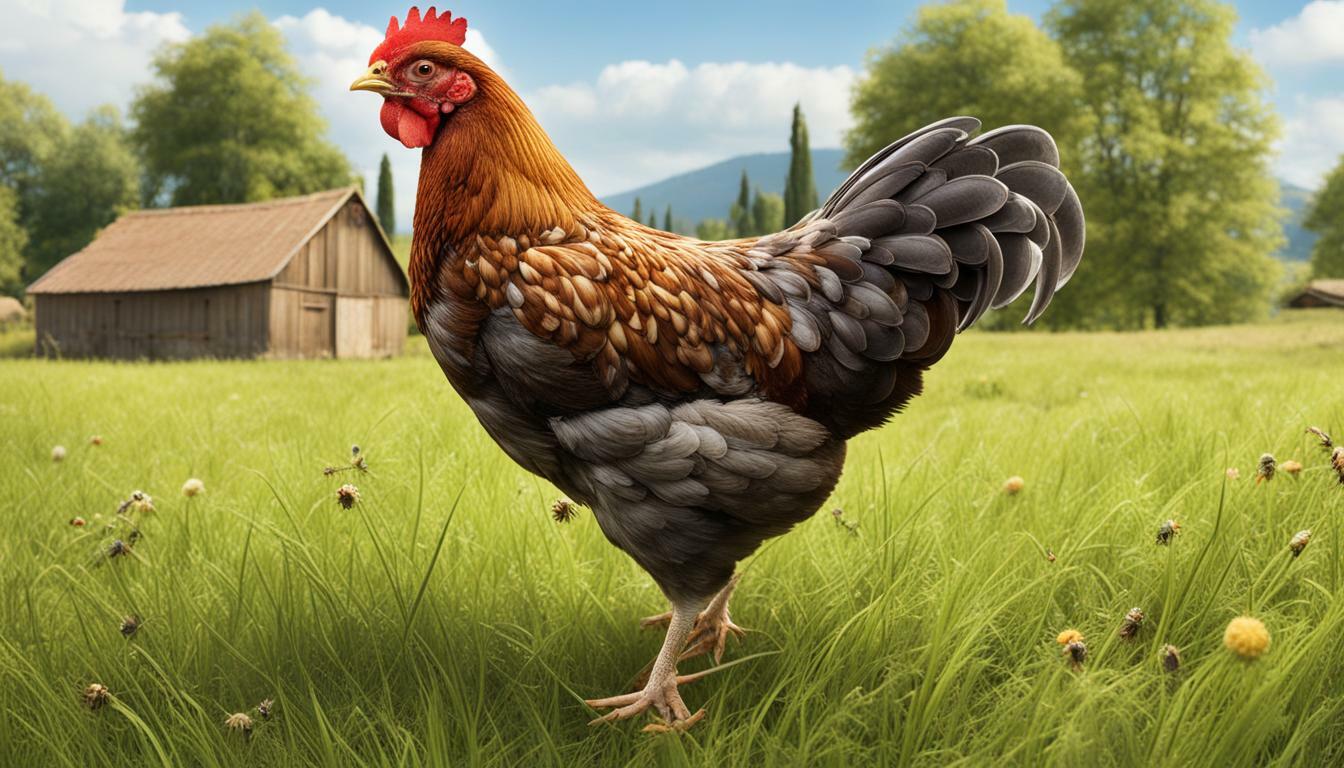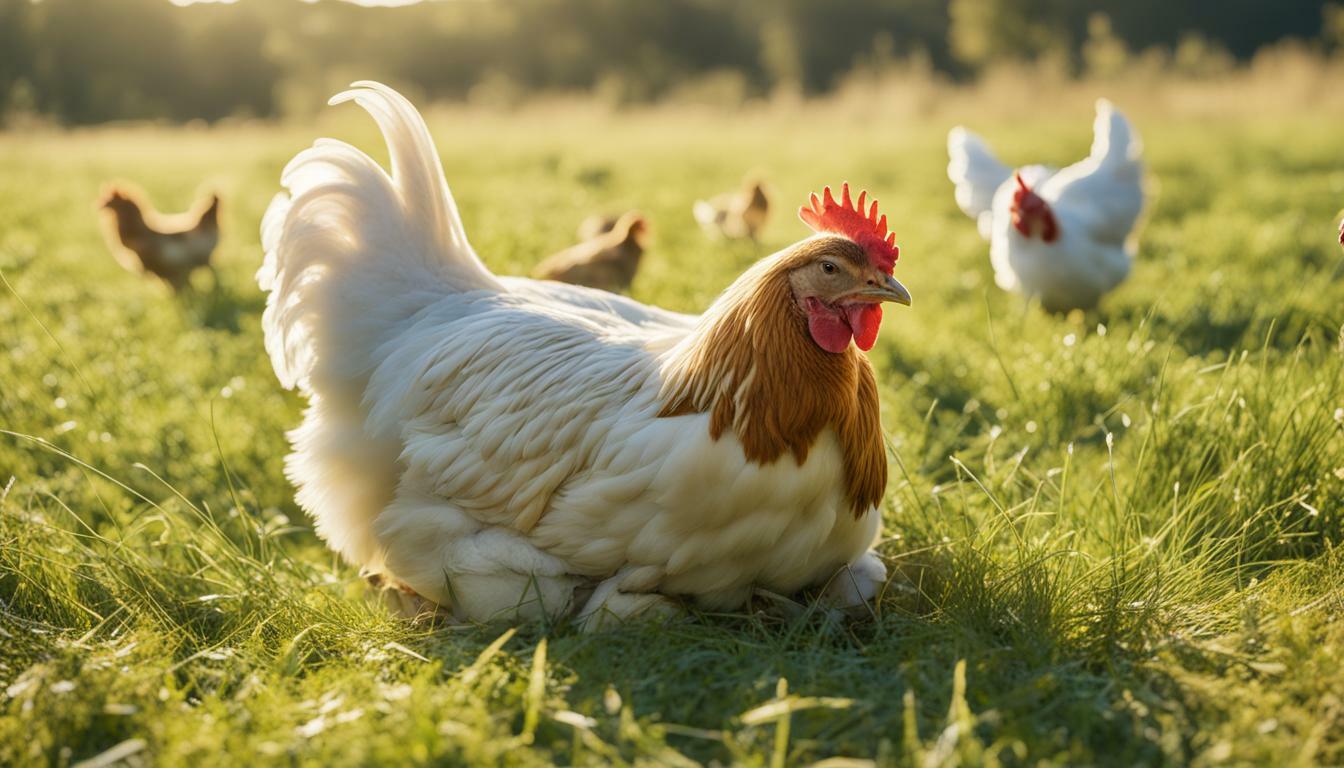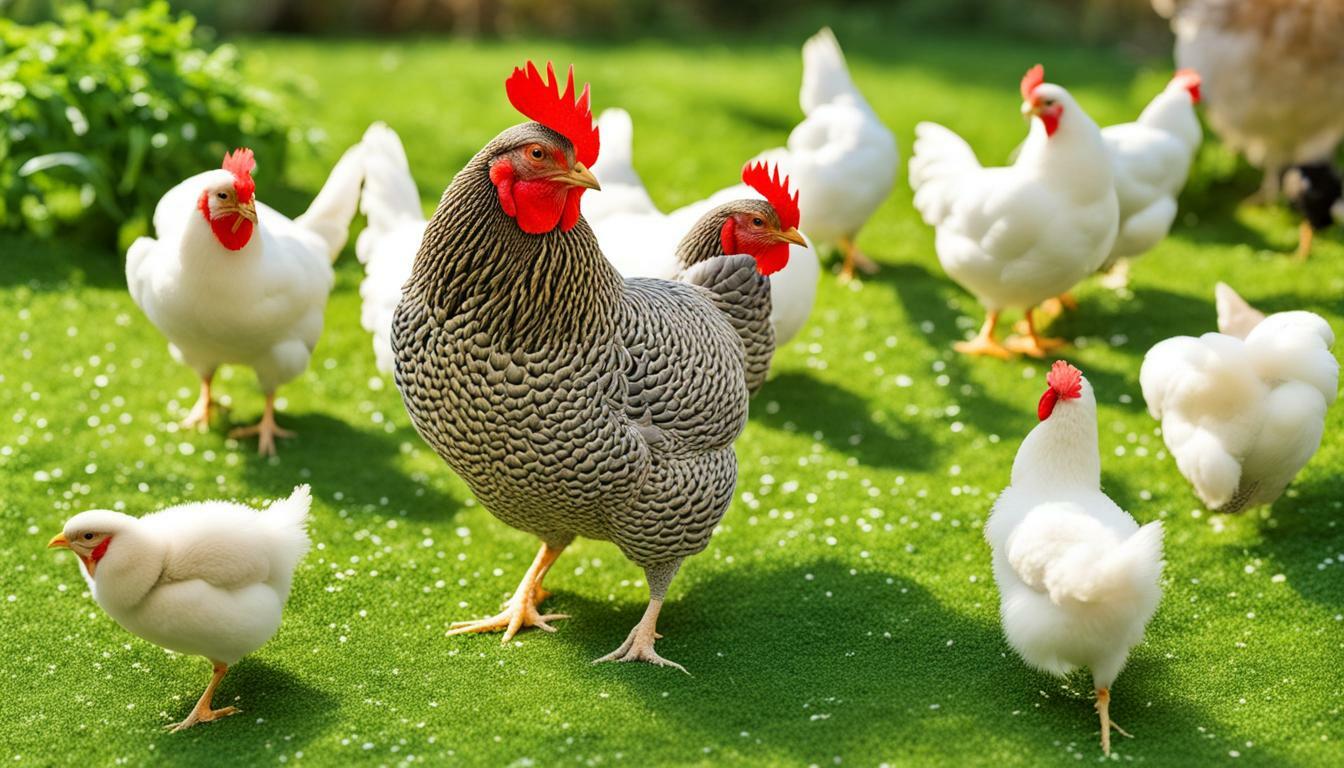Do Chickens Eat Chiggers? Keeping Your Flock Chigger-Free

Table of content:
Raising chickens can be an extremely rewarding experience. From enjoying farm-fresh eggs to having quirky feathered friends, chickens make great additions to any backyard or homestead. However, caring for chickens also comes with its fair share of challenges. Parasites like chiggers can be a major nuisance for your flock. But do chickens eat chiggers? And how can you protect your chickens from chigger infestations? This article will cover everything you need to know about chickens and chiggers.
What Are Chiggers?
Chiggers, also known as harvest mites or red bugs, are tiny parasitic mites that feed on the skin cells and tissue fluid of humans, chickens, and other animals. The larval form of chiggers is the only stage that bites and feeds on hosts.
Chiggers are extremely small – roughly 0.5 mm in size – and reddish or orange in color. They inhabit areas with tall grasses and vegetation. Chiggers latch onto the skin of passing animals and inject enzymes that break down skin cells. This creates a tube or stylostome through which the mite feeds.
The feeding usually only lasts 3-4 days. Once engorged, the larvae fall off and mature into nymphs and then adults. The adults are harmless and do not feed on animals.
While chiggers don’t typically carry or transmit diseases, they can cause extremely itchy welts and skin irritation in chickens, humans, dogs, cats, and other animals. Severe chigger infestations may even lead to weight loss, reduced egg production, and lethargy in chickens.
Do Chickens Eat Chiggers?
Chickens are omnivores and will eat both plant and animal matter. Their diverse diets allow chickens to control pests like ticks, mites, and flies on your property. But chickens do not directly consume chiggers.
This is because chiggers are so tiny that chickens simply cannot see them to eat them. Chiggers also only attach to animals like chickens to feed – they don’t live on the skin or feathers.
So while chickens don’t directly eat chiggers, they can still help control chigger populations by consuming:
- Chigger eggs
- Nymphs and adult mites
- Alternate chigger hosts like rodents and lizards
Free-ranging chickens that have access to chigger-infested areas are able to hunt and scavenge these items as part of their natural diet. This helps disrupt the chigger life cycle and reduces their numbers over time.
Do Chickens Get Chiggers?
Chickens can and do get chigger bites. Chiggers often infest areas where chickens feed and dust bathe like coops, runs, and pastures. If the habitat is overgrown with vegetation, it can harbor large chigger populations during summer and fall.
When chickens pass through these areas, chiggers can latch onto their skin around the vent, breast, and legs. Chiggers may also get under the wings if the feathers are sparse. They inject their enzymes and feed in clusters, creating red, swollen lesions on the skin.
Chigger-bitten chickens will obsessively peck and scratch at these areas. Severe infestations lead to scabs, blood loss, and secondary infections. Chiggers can even transmit diseases like fowl typhoid between chickens through feeding.
Light chigger infestations may go unnoticed. But severe cases cause lethargy, weight loss, reduced egg production, and loss of appetite. Chickens may refuse to move or enter chigger-infested areas.
Signs of Chigger Infestation in Chickens
Watch for these signs that your flock may have chiggers:
- Red pimples and scabs on the skin, especially around the vent and breast
- Swollen skin, lesions, or scabs from excessive pecking
- Bald spots from feather pecking and scratching
- Chickens avoiding certain areas or acting agitated
- Bloody scabs from broken skin
- Lethargy, reduced appetite, or drop in egg production
Check the vent area, under wings, and skin around legs and feet thoroughly. Look for tiny red bumps clustered together. You may even see small black or red dots crawling on the skin.
If you suspect a severe chigger infestation, schedule a vet visit. They can provide medication to reduce inflammation and prevent secondary infections.
How to Prevent Chiggers in Backyard Chickens
The best way to protect chickens from chiggers is through prevention and habitat management:
Reduce Vegetation Around Housing and foraging Areas
Keeping coops, runs, and pastures mowed short removes chigger habitat and exposes them to predators. Rake up fallen leaves and clear overgrown brush regularly.
Use Diatomaceous Earth & Wood Ash
Sprinkle food-grade diatomaceous earth and wood ash in coop bedding and dust baths. The powdery texture irritates and deters chiggers.
Keep Wild Birds Out of Feeders
Use feeders with weight-sensitive perches. Keep the area clean to avoid attracting rodents. Both can transport chigger eggs and larvae.
Isolate New Birds & Monitor Flock Health
Quarantine new chickens for at least 30 days. Check often for signs of chiggers or illness, which stress can exacerbate.
Apply Pest Control Sprays
Treat coops, roosts, and dust baths with natural pesticide sprays containing neem oil, rosemary oil, or food-grade DE. Reapply after rain.
Turn Compost Regularly
Frequently turning compost piles exposes chiggers to heat and predators. Avoid composting right next to coops.
Allow Access to Dust Baths
Chickens will work chigger-killing dust like DE into their feathers during dust baths. Provide a box of dust for them to use freely.
Natural Chigger Treatments for Chickens
If your flock still manages to get chiggers, here are some natural options to treat infestations:
- Apply food-grade DE, wood ash, or kaolin clay directly on chigger lesions daily to kill mites.
- Mix apple cider vinegar in water and spray on affected areas to reduce swelling and itching.
- Apply sulfur powder to deter chiggers and alleviate itching from bites.
- Use essential oils like tea tree, lavender, or peppermint diluted in a carrier oil to repel chiggers.
- Feed chickens garlic and provide garlic powder supplements to repel parasites.
- Add food-grade DE to feed at 1% ration to kill chiggers from inside out.
- Apply raw honey to chigger bites daily to reduce itching and help prevent infection.
Monitor chickens closely during treatment. Separate injured or sick birds until they heal to prevent cannibalism from flock. Always keep them in clean, dry housing.
When to Seek Vet Care for Chiggers
In most cases, the above measures will clear up a chigger infestation. However, consult a veterinarian if:
- Chiggers don’t improve after 2-3 weeks of treatment.
- Bites become severely infected, oozing pus.
- Chickens seem in distress or very lethargic.
- You notice a drop in appetite, weight loss, or other signs of illness.
- Egg production drops suddenly without obvious cause.
- Flock shows signs of the bacterial disease fowl typhoid.
Medicated shampoos, antibiotic ointments, anti-parasitic drugs, or steroids may be needed for severe cases under vet supervision.
Can Chickens Transfer Chiggers to Humans?
Chickens cannot transmit chiggers directly to humans. Chiggers latch onto a single host animal during their larval stage. They do not crawl from animal to animal.
However, chiggers in areas where poultry roams can bite both chickens and humans. If you handle chigger-infested chickens, larvae may crawl onto you and bite. But the mites originated in the environment, not on the chicken itself.
To avoid chigger bites, wear protective clothing like long pants, sleeves, gloves, and boots in chicken habitats. Tuck pants into boots. Apply repellent containing DEET to shoes, socks, and pant cuffs.
Shower and wash clothing immediately after handling chickens or cleaning coops to rinse off any potential mites. Doing regular tick checks after outdoors can also help spot chigger bites early.
Protect Your Flock from Chiggers
Chiggers can certainly cause frustration for backyard chicken keepers. But through proper prevention and management, you can help spare your flock from these pesky parasites.
Monitor your chickens’ health, control vegetation, use natural deterrents, and separate sick birds. With some extra care and precaution, you and your hens can both avoid becoming a chigger’s next meal.
Final Thoughts
- Chickens do not directly consume chiggers but can eat alternate hosts to reduce infestations.
- Prevent chiggers by controlling vegetation, applying natural repellents, and monitoring flock health.
- Look for red, swollen skin lesions clustered together to identify chigger bites on chickens.
- Treat chigger bites with natural remedies like DE, essential oils, ACV, and honey. Seek vet care if an infestation is severe.
- While chickens don’t transmit chiggers to humans, bites can still be avoided through protective clothing and tick checks.
Keeping chickens chigger-free takes some extra work but is well worth it for their health and productivity. With the information in this article, you can master chigger prevention and treatment for a happy, healthy flock.
Welcome. I’m Adreena Shanum, the proud owner of this website, and I am incredibly passionate about animals, especially poultry. I founded adreenapets.com as a labor of love, stemming from my desire to share my knowledge and experiences with poultry enthusiasts worldwide.




